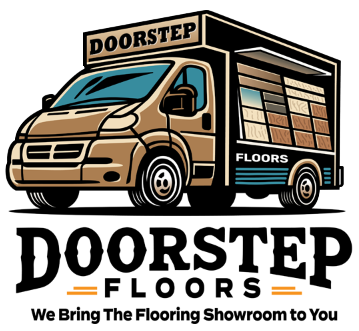Solid hardwood vs. engineered hardwood: Which offers better value for money?
Engineered hardwood typically offers better value for money in terms of upfront cost, installation flexibility, and moisture resistance. However, solid hardwood may provide greater long-term value due to its ability to be refinished multiple times and its higher resale appeal.
Read more
Upfront Costs and Installation
The initial price of flooring plays a major role in determining value for money. Here’s how solid and engineered hardwood compare on cost and ease of installation.
Solid Hardwood
- Material cost: $6 – $18 per sq. ft.
- Installation cost: $4 – $12 per sq. ft.
- Typically nailed or stapled down and best suited for professional installation.
Engineered Hardwood
- Material cost: $3 – $15 per sq. ft.
- Installation cost: $3 – $10 per sq. ft.
- More installation options, including floating and click-lock methods, which can reduce labor costs.
Durability and Lifespan
Longevity is a critical factor in overall value. The more durable your flooring, the longer your investment lasts.
Solid Hardwood
Can last 50+ years and be refinished multiple times, making it a long-term investment that increases home value.
Engineered Hardwood
Typically lasts 20–30 years. Can be refinished once or twice depending on the thickness of the top wood layer.
Moisture and Environmental Suitability
Flooring that performs well in more environments offers greater versatility and, in turn, more value.
Solid Hardwood
Susceptible to warping in moisture-prone or humid environments. Not ideal for basements or bathrooms.
Engineered Hardwood
Designed to be more dimensionally stable, making it suitable for basements, kitchens, and areas with changing humidity levels.
Maintenance and Refinishing
Maintenance and refinishing capabilities directly affect how long your flooring looks good and performs well.
Solid Hardwood
Can be sanded and refinished many times, allowing you to refresh the look or repair deep wear, adding long-term value.
Engineered Hardwood
Limited refinishing potential, especially with thinner top layers. May need to be replaced once surface wear becomes significant.
Resale Value and Aesthetic Impact
Flooring can boost home value and attract buyers, especially with timeless materials like hardwood.
Solid Hardwood
Highly desirable to homebuyers and known to increase resale value. Offers a timeless, luxurious look.
Engineered Hardwood
Also well-regarded, especially high-quality versions, but may not carry the same premium perception as solid hardwood.
Comparison: Solid vs. Engineered Hardwood Value
| Feature | Solid Hardwood | Engineered Hardwood |
|---|---|---|
| Material Cost | $6 – $18 per sq. ft. | $3 – $15 per sq. ft. |
| Installation Flexibility | Low (nail-down only) | High (nail, glue, or floating) |
| Lifespan | 50+ years | 20–30 years |
| Refinishing | Multiple times | Limited (1–2 times) |
| Moisture Resistance | Low | Moderate |
| Resale Value | Very High | High |
Which Flooring Offers Better Value?
If you’re looking for long-term investment and top-tier resale value, solid hardwood delivers unmatched durability and prestige. If you’re focused on affordability, installation flexibility, and moisture resistance—especially for specific rooms—engineered hardwood offers excellent value at a lower upfront cost.
Conclusion
Both solid and engineered hardwood offer strong value depending on your priorities. Choose solid hardwood for longevity and maximum home value, or engineered hardwood for budget-friendliness, moisture versatility, and simpler installation. The best choice depends on your home, lifestyle, and how long you plan to stay.

